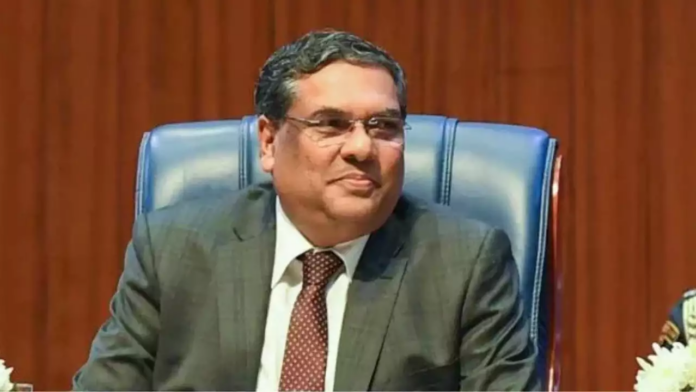Supreme Court judge Sanjiv Khanna is set to take the oath as the 51st Chief Justice of India on November 11, following the retirement of CJI DY Chandrachud on November 10. Known for his impactful rulings on key issues, including the abrogation of Article 370 and the electoral bonds scheme, Justice Khanna has built a reputation for his balanced approach to democratic values and fairness. His judicial journey, filled with landmark decisions, signals a meaningful transition for the Indian judiciary.
Journey from Advocate to Chief Justice of India
Born on May 14, 1960, Justice Khanna embarked on his legal career in 1983 with the Bar Council of Delhi, where he initially practiced at the district courts and the Tis Hazari complex. He later moved to the Delhi High Court and various tribunals before being appointed an additional judge of the Delhi High Court in 2005 and becoming a permanent judge in 2006. His elevation to the Supreme Court in 2019 was notable as he became a Supreme Court judge without serving as a Chief Justice of any High Court — a rare occurrence in India’s judicial hierarchy.

Landmark Rulings: Article 370 and Electoral Bonds
Justice Khanna has been involved in several landmark cases that have had far-reaching implications for India’s democratic fabric. Among his most notable judgments was his role on the five-judge bench that upheld the abrogation of Article 370, which had granted Jammu and Kashmir special autonomy. Justice Khanna’s judgment emphasized that Article 370, though a unique aspect of India’s federal structure, did not imply sovereignty for Jammu and Kashmir, thus aligning with the government’s stance on national integration and federal unity.
In another crucial case, Justice Khanna was part of the bench that declared the electoral bond scheme unconstitutional. He supported the view that anonymous donations through electoral bonds violate the public’s right to information, posing concerns about transparency and accountability in political financing. His decision on this matter underscored the importance of public knowledge in maintaining a fair democratic process.
Democratic Participation and Fairness: Interim Bail and PMLA Rulings
Justice Khanna’s rulings have often highlighted the importance of democratic participation and fairness. In a case involving former Delhi Chief Minister Arvind Kejriwal, he granted interim bail, enabling him to campaign during the Lok Sabha elections, emphasizing the significance of democratic engagement.
Justice Khanna also took a progressive stance in cases related to the Prevention of Money Laundering Act (PMLA). In a recent decision involving former Delhi Deputy Chief Minister Manish Sisodia, he ruled that delays in trial proceedings could serve as valid grounds for granting bail under the PMLA, signaling an empathetic approach towards the rights of the accused in prolonged legal battles. His ongoing review of PMLA provisions reflects his commitment to ensuring fairness within India’s financial regulatory framework.
A Legacy of Empathy, Fairness, and Compassion
Justice Khanna’s tenure on the bench has been characterized by a compassionate approach to justice, emphasizing empathy and fairness. Known for his balanced and inclusive perspectives, he has often advocated for judicial decisions that serve both the letter and spirit of the law. His impending role as Chief Justice will likely continue this legacy, focusing on strengthening democratic principles and fairness in judicial practices.
Reflecting on his approach to justice, Justice Khanna has been vocal about the need for the judiciary to embody compassion alongside legal rigor. His judgments have consistently shown a balance between upholding legal standards and recognizing individual rights, a quality that has earned him respect across the legal community.
A New Chapter for the Indian Judiciary
As Justice Sanjiv Khanna steps into the role of Chief Justice of India, his extensive experience and legacy of landmark rulings signal a promising chapter for the judiciary. With a strong emphasis on democratic values, transparency, and empathy, he brings a nuanced perspective that aligns with India’s evolving legal and social landscape. His judgments on Article 370, electoral bonds, and PMLA cases reflect his dedication to fairness and democratic integrity, setting a high bar for his term as the nation’s highest judicial authority.

